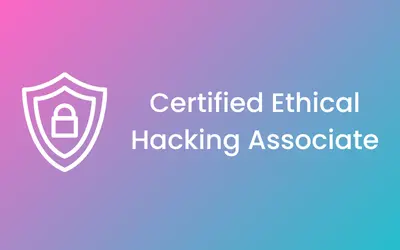CYBER SECURITY TRAINING IN SURAT
-

-
(16042 Reviews)
-
Career Opportunities: Discover exciting job options in Surat's cyber security field. Get ready for roles like security analyst or ethical hacker.
-
Important Skills for Success: Master key skills such as network security, ethical hacking, and cloud protection to shine in the cyber world. Help businesses stay protected from online risks.
-
Real-World Experience: Gain practical experience through internships with top companies. Improve your skills and confidence to build a successful future in cyber security.

























